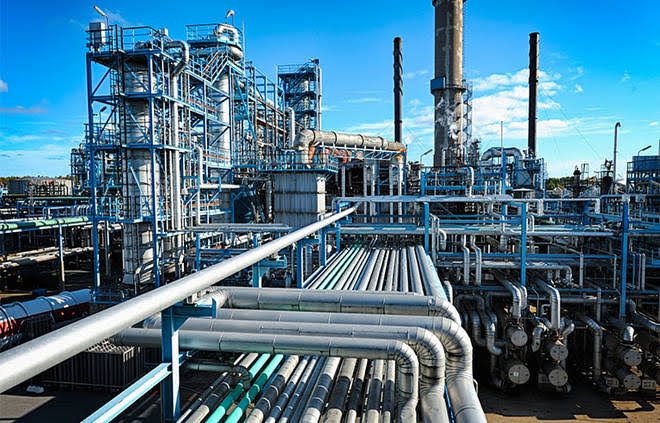Nigeria’s advocacy to halt plans to defund gas projects has been backed by continental and international rallies.
According to a statement by the Spokesman of the Vice President, Laolu Akande, the African Development Bank (AfDB) endorsed the clamor during a meeting last week between Vice President Yemi Osinbajo and a delegation of the bank. So, also did a team of US experts recently in a widely published article.
Background
Osinbajo has, in recent times, advocated for a just transition to global net-zero emissions, particularly calling on multilateral agencies, and western countries to stop the planned defunding of gas projects in developing countries.
Speaking during a Virtual Conference themed: ‘Climate, Conflict, and Demography in Africa’, jointly hosted by the International Crisis Group, the Royal African Society, and African Confidential Publications in September, Osinbajo said efforts are currently underway to limit the development of gas projects in Africa despite its contribution to climate change being negligible.
According to him, the conspiracy “violates the principles of equity and justice, enshrined in global agreements as developed nations are not making needed efforts to invest in clean energy in the continent, neither do they redirect global capital to our nations.”
“But worse, we are being compelled to make disproportionately huge sacrifices as the wealthier countries continue full speed on defunding gas projects and insisting that gas projects must be defunded as an important component of the drive towards net-zero emissions by 2030,” he added.
Commenting on the amount of investments required in clean electricity – generation and grid storage infrastructure, Osinbajo stated that to get the world on track for net-zero emissions by 2050, it will cost more than US$1.6 trillion per year by 2030. “This is over four times more than what was invested in these sectors in 2020. In regions like Africa, installed electricity capacity will need to double by 2030 and increase at least five-fold by 2050,” he said
AfDB Support
The AfDB delegation led by Vice President for Power, Energy, Climate and Green Growth, Kevin Kariuki expressed the bank’s commitment and support for a just energy transition.
Related Articles
His words, “First thing, I would like to mention is that you have inspired us a lot in the recent past, through your strong and very well-articulated position on the issue of gas as far as Nigeria and Africa is concerned.
“You clearly stated that gas must be seen to be a transitional fuel for Africa, which is a position that our bank also supports because we do understand that Africa needs to increase its energy access, and you can’t increase energy access without utilizing some of the resources and energy sources that we have. I believe that this position you have taken was also supported and stated by the Bank’s president (Mr. Akinwunmi Adesina) during the ministerial retreat.”
The Vice President welcomed AfDB’s support and stated that “we look forward to doing far more in the power sector and hope that we would be able to get your (AfDB) support going forward. We know that there are quite a few things that the bank has put resources into.
“Thank you very much for the great support we get from AfDB and also for your willingness and readiness at all times.”
In another development, a number of US-based experienced clean energy policy researchers have argued that banning financing for fossil fuel projects in Africa isn’t a climate solution.
US Experts Support
Scholars Benjamin Attia and Morgan Brazilian from the US Payne Institute submitted that “when it comes to carbon dioxide emissions, sub-Saharan Africa is collectively responsible for barely half a percent of all global emissions over time, while the US, UK, EU, Japan and Russia are responsible for more than 100 times that amount, or about 57%.”
The experts referred to Prof. Osinbajo’s advocacy on the issue. “Nigerian Vice President Yemi Osinbajo recently described “energy transition” as “a curious term” when applied universally, given the energy shortfalls in countries like Nigeria. He has argued for an energy transition in which Africa can develop quickly and grow.”
They noted that indeed “increasing electricity in industrializing regions of sub-Saharan Africa would first power income-generating activities and public services, both drivers of economic growth.”
The US experts concluded that “equitable and effective climate negotiations will require nuanced policy considerations that balance the priorities of alleviating energy poverty with urgent climate change mitigation and adaptation. A just energy transition would leave African governments to make and implement policies and deliver on their own national climate commitments under the Paris Agreement rather than shouldering the West.”





